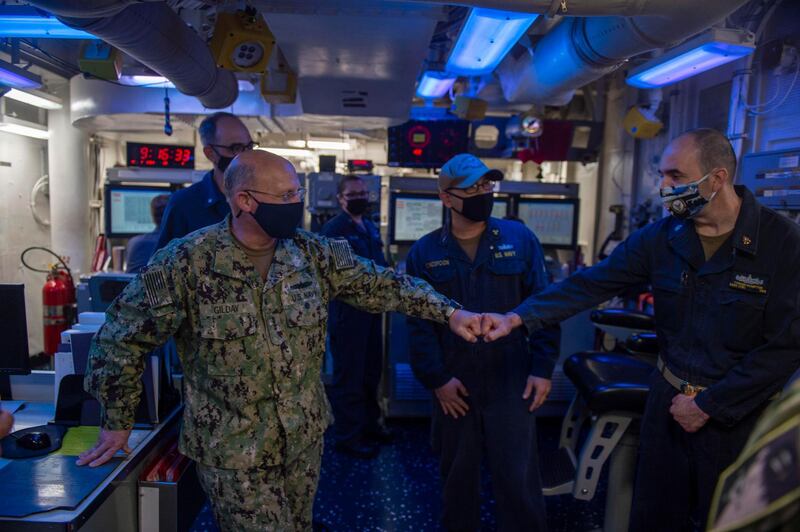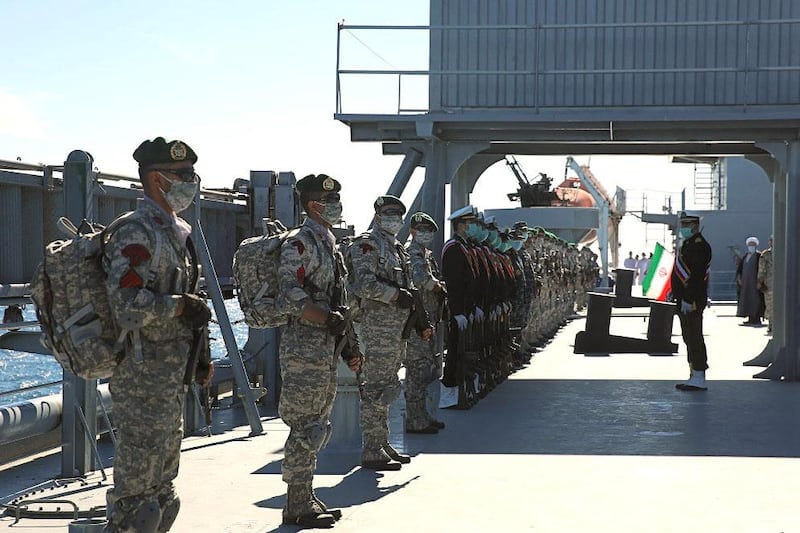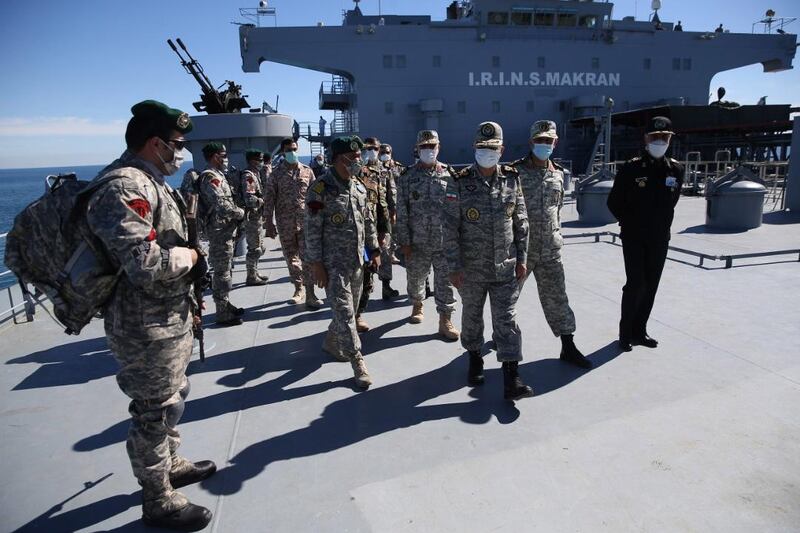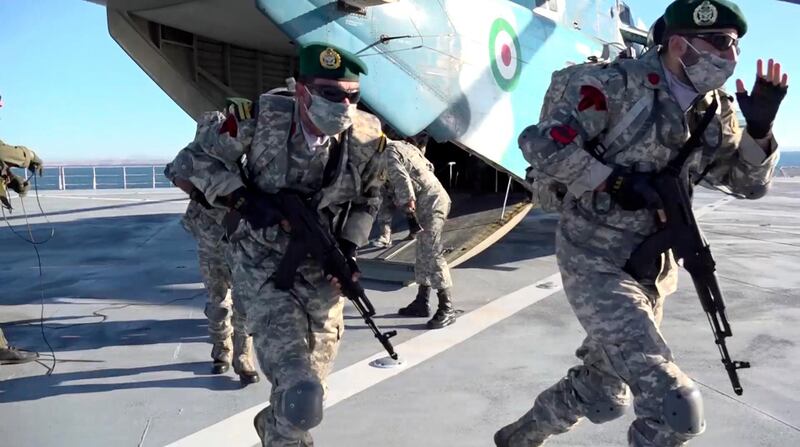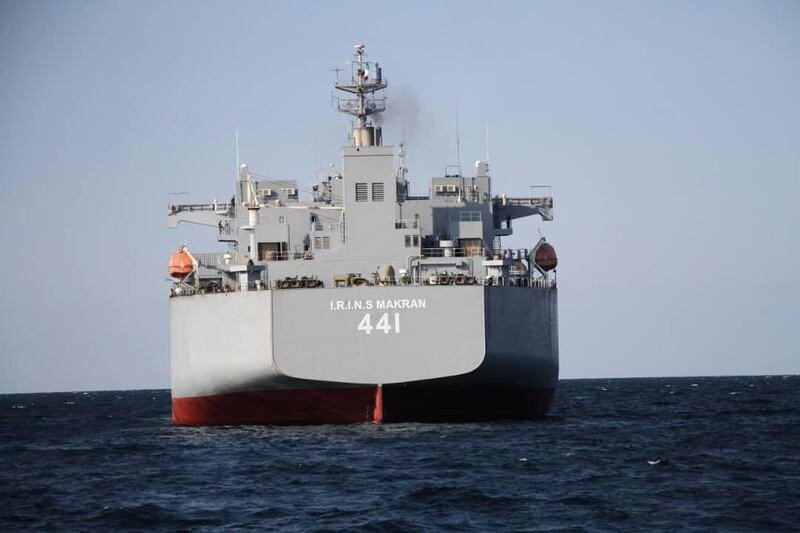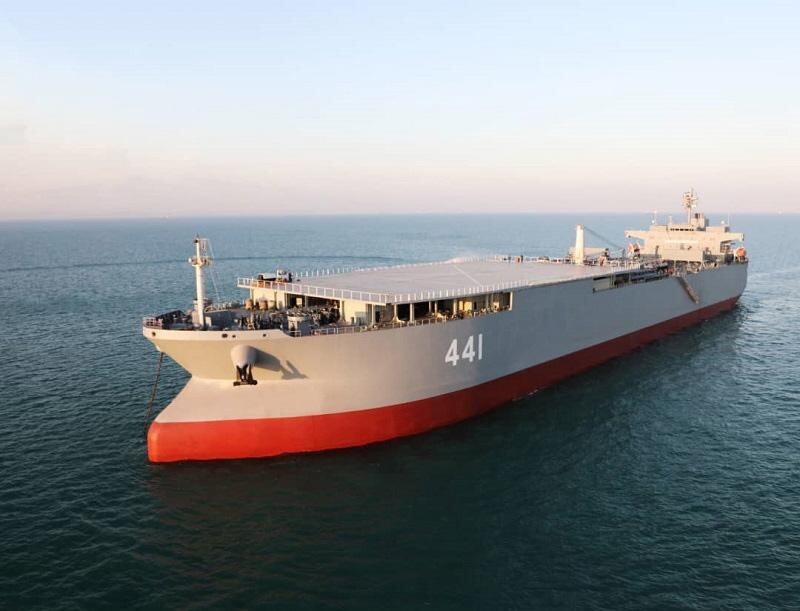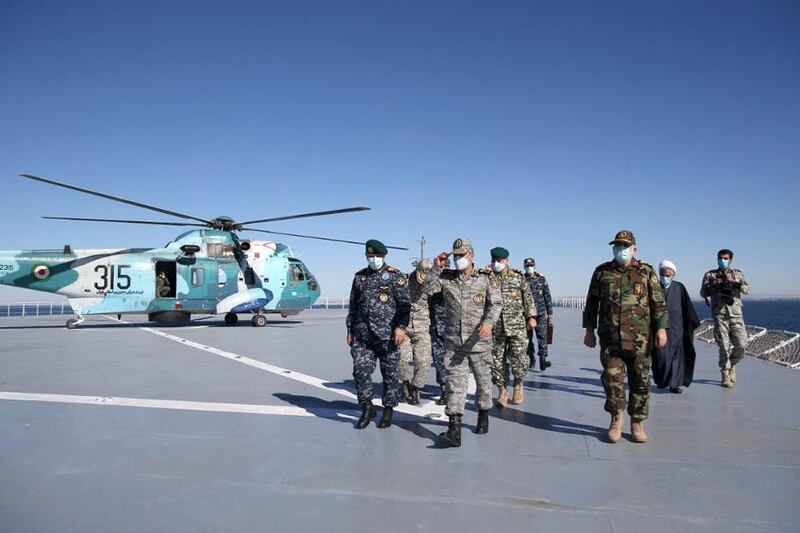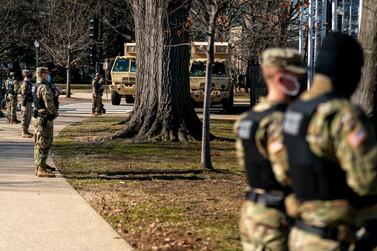The US Navy's operations chief said on Thursday that the Gulf maritime region is stable despite threats and malign activities amid rising tensions with Iran.
"Things seem to be stable in the region, we have the US and a dozen nations working together to keep the navy safe," Adm Mike Gilday said.
Adm Gilday, who had just completed a trip to Bahrain, said the US was “sending a clear signal to Iran and others that we have the capability to respond if we are required to”.
“We have the right forces in place and we are sending the right message publicly, they have been accepted and we have been able to deter malign activities,” he said.
The US is leading an international maritime coalition to keep "the seas free and open", including the Gulf of Oman and the Bab Al Mandeb Strait in the Red Sea.
Washington expects the coalition's membership of 33 nations to increase.
__________
[ Iran showcases new ships and holds provocative missile drills in Gulf of Oman ]
__________
“It is an informal organisation that has been around for 20 years and for the US Navy it’s critical to what we do, day in and day out," he said.
Adm Gilday said the US Navy was committed to strengthening and expanding co-operation with the coalition in the region.
"It is our hope that we will continue to identify new areas for collaboration in order to maintain security, stability and prosperity within the region and keep the seas free and open," he said.
The final days of US President Donald Trump's presidency have led to rising tensions between Washington and Tehran, with the Pentagon sending the submarine USS Georgia to the Arabian Gulf late last month.
Washington does not want to instigate or “look for trouble”, Adm Gilday said. Iran, China and Russia’s naval activities are all priorities for Washington, but it all depends on the indicators it receives.
“Our priority sometimes shifts depending on what is going on in the international community,” he said.
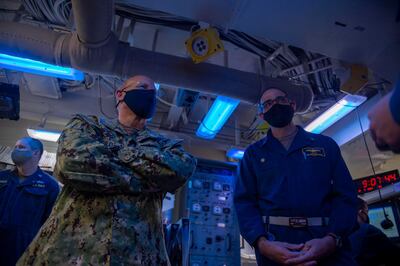
US Secretary of State Mike Pompeo on Thursday praised international efforts to secure the Strait of Hormuz and the Arabian Gulf from "Iran's illegal acts".
In a message on Twitter, Mr Pompeo thanked the UAE, Bahrain, the UK, Albania, Lithuania, Australia and Saudi Arabia for "protecting one of the world's most critical shipping lanes" from what he called Iranian pirates of the strait, using the hashtag #piratesofhormuz in reference to Iran's Islamic Revolutionary Guard Corps.
Washington has led an international naval task force to protect shipping in the Gulf region after attacks on vessels and the seizure of the British oil tanker Stena Impero in 2019.
